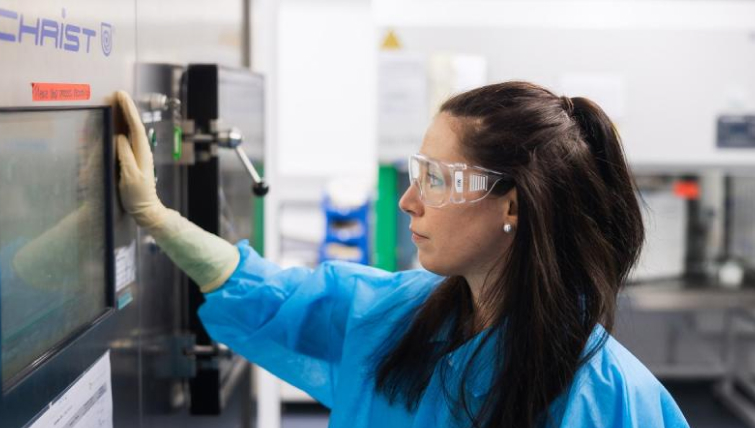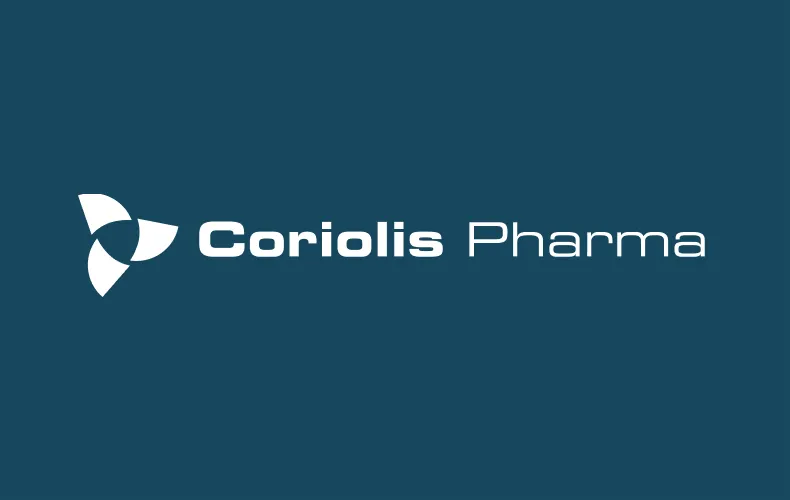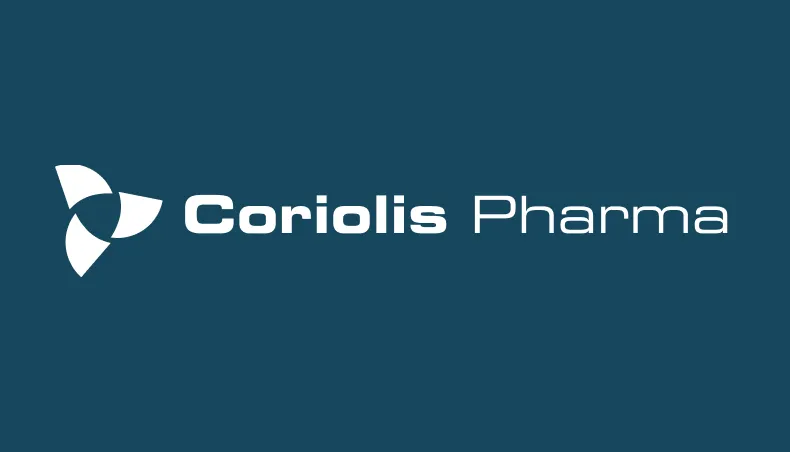Lyophilization Process Development
Coriolis Pharma’s team of experts specializes in lyophilization, bringing extensive experience in developing, optimizing, scaling up, and transferring lyophilization cycles for biopharmaceutical drug products. Our advanced approaches are designed to create robust, economical freeze-drying cycles by implementing a stepwise lyophilization process development program tailored to your product’s unique characteristics, formulation, and development phase. Trust our proven lyophilization expertise to enhance efficiency, quality, and cost-effectiveness in biopharmaceutical production.
Lyophilization Modeling That Delivers Outstanding Process Understanding

Our Lyophilization Modeling (Lyo-Modeling) capabilities allow us to generate excellent process understandings and can be integrated into our clients’ QbD-based development strategy for regulatory submissions. The lyophilization model-based approach integrates scientific principles, empirical data and mathematical modeling to optimize and control the lyophilization process. This approach enhances understanding, reduces development time and improves product quality and process efficiency.
From the start, our expert scientists consider the critical variables of each freeze-drying step to maintain the target shelf life, an elegant cake appearance and an economical lyophilization process.
5 Steps for Successful Lyophilization Process Design
We analyze in-process samples using a comprehensive set of process analytical technology (PAT) and physicochemical characterization methods suitable for lyophilizates. This approach ensures the robustness of the freeze-drying processes and enables high-quality, efficient production of lyophilized drug products.
Critical product temperatures
Process development
Process optimization
Process scale-up
Process transfer
Lyophilization Process Development Tailored to Your Drug Product
We operate freeze dryers from lab to production scale and develop processes for many different biopharmaceutical drug products, including highly concentrated protein formulations, organic solvent-containing formulations and drug substances like live virus vaccines and viral vectors that fall under biosafety level 2.
Your Phase
Our expert team has the knowledge and experience to guide your lyophilization development from preclinical to late-phase process development and process optimization. They can support drug development in the early phase and give guidance on whether to go for a liquid or lyophilized formulation. Coriolis can support our clients in converting from frozen liquid to a lyophilized formulation to gain a market advantage.
Lyophilization Process Development Resources

Publications
Is Lyophilization Key for Transportation and Storage of Biopharmaceutical Drug Products in Space?
May 1, 2024

Publications
December 1, 2023
Lyophilization FAQs
-
Lyophilizate analytical services are vital to optimizing and validating the freeze-drying process in biopharmaceutical development. Key contributions include:
- Product Characterization: Detailed analysis of the lyophilized cake, including morphology, structure, and reconstitution properties, helps ensure the product meets critical quality attributes.
- Moisture Content Analysis: Accurate measurement of residual moisture informs the optimization of drying parameters and ensures product stability during storage.
- Stability & Degradation Studies: Monitoring chemical stability and identifying any degradation under various conditions guides formulation improvements and process adjustments.
- Process Optimization: Analytical data support fine-tuning cycle parameters (e.g., temperature and pressure profiles) to balance product quality with process efficiency.
- Scale-Up Validation: Confirming that the lab-scale process translates effectively to larger production volumes helps mitigate risks during scale-up.
- Regulatory Compliance: Comprehensive analytical characterization supports documentation required for regulatory submissions and demonstrates consistent product quality.
Overall, lyophilizate analytical services provide the critical feedback needed to optimize lyophilization cycles, ensuring biopharmaceutical products are robust, stable, and safe for patient use.
-
The decision to lyophilize a drug rather than supply it in liquid form depends on numerous variables. However, in general, lyophilization offers several key benefits, including:
- Enhanced Stability: Removing water significantly reduces the risk of hydrolytic degradation and other water-mediated chemical reactions, helping maintain the drug’s potency over time.
- Extended Shelf Life: With reduced moisture content, lyophilized drugs typically have a longer shelf life, which is crucial for biopharmaceuticals that might otherwise degrade rapidly.
- Storage and Transport Advantages: Lyophilized products are generally more stable at room temperature, lessening the reliance on cold chain logistics and lowering storage costs.
- Improved Reconstitution: By formulating the drug as a dry powder, manufacturers can control the quality and uniformity of the reconstituted product at the time of use.
- Dose Flexibility: Lyophilization allows for precise dosing and formulation adjustments, which can be critical during development and clinical use.
-
Lyophilization significantly influences a drug’s formulation development by introducing factors that must be carefully considered, including:
- Stability: Removing water increases chemical and physical stability, but the formulation must be designed to protect the drug during both the freezing and drying phases. This often requires incorporating stabilizers and cryoprotectants to prevent degradation or aggregation.
- Selection of Excipients: Effective excipients will stabilize the active ingredient and help maintain the structure of the lyophilized cake, which is vital for ensuring consistent reconstitution and drug efficacy.
- Optimizing Process Conditions: The formulation must be compatible with the lyophilization cycle conditions (freezing, primary and secondary drying). This may involve adjusting the pH, buffer systems, and solute concentrations to withstand thermal and mechanical stresses during processing.
- Reconstitution Behavior: The final product should reconstitute quickly and uniformly. This requires careful formulation design to ensure that the lyophilized cake dissolves efficiently, preserving the drug’s bioactivity and ease of administration.
- Scale-Up Considerations: During formulation development, scalability must be taken into account. The formulation must perform consistently from laboratory-scale studies to full-scale production, with the lyophilization process tailored to meet critical quality attributes.
